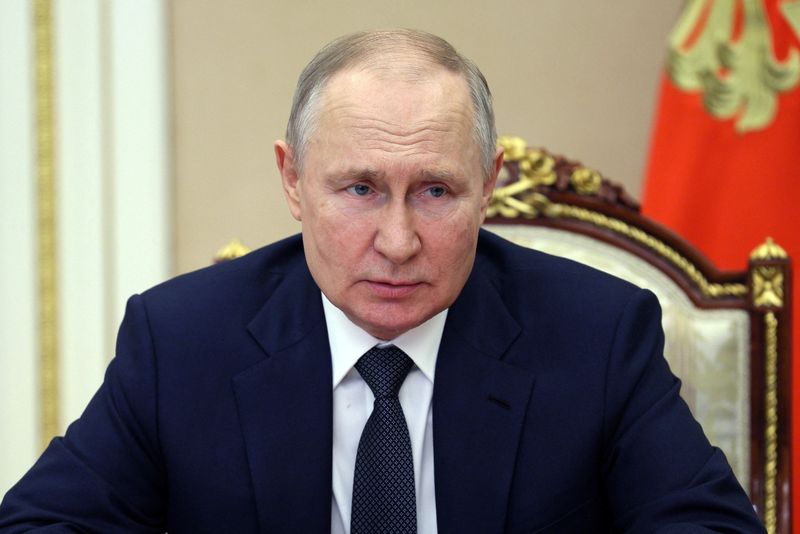By Guy Faulconbridge
(Reuters) -Russia's parliament speaker on Saturday proposed banning the activities of the International Criminal Court (ICC) after the court issued an arrest warrant for President Vladimir Putin, accusing him of the war crimes.
Vyacheslav Volodin, an ally of Putin's, said that Russian legislation should be amended to prohibit any activity of the ICC in Russia and to punish any who gave "assistance and support" to the ICC.
"It is necessary to work out amendments to legislation prohibiting any activity of the ICC on the territory of our country," Volodin said in a Telegram post.
Volodin said that the United States had legislated to prevent its citizens ever being tried by the Hague court and that Russia should continue that work.
Any assistance or support for the ICC inside Russia, he said, should be punishable under law.
The ICC issued an arrest warrant earlier this month accusing Putin of the war crime of illegally deporting hundreds of children from Ukraine. It said there are reasonable grounds to believe that Putin bears individual criminal responsibility.
Russian officials have cautioned that any attempt to arrest Putin, Russia's paramount leader since the last day of 1999, would amount to a declaration of war against the world's largest nuclear power.
In its first warrant for Ukraine, the ICC called for Putin's arrest on suspicion of unlawful deportation of children and unlawful transfer of people from the territory of Ukraine to the Russian Federation since Feb. 24, 2022.
The Kremlin says the ICC arrest warrant is an outrageously partisan decision, but meaningless with respect to Russia. Russian officials deny war crimes in Ukraine and say the West has ignored what it says are Ukrainian war crimes.

Big powers such as Russia, the United States and China are not members of the ICC though 123 countries are state parties to the Rome Statute, including Britain, France, Germany and some former Soviet republics such as Tajikistan.
Ukraine is not a member of the ICC, although Kyiv granted it jurisdiction to prosecute crimes committed on its territory.